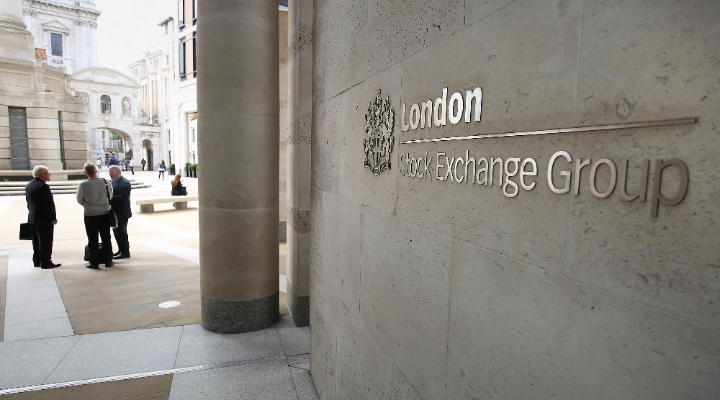
Infrastructure funds invest in physical assets such as wind farms, solar panels and biomass; in schools, hospitals and roads; and in social housing projects. Many of the assets they own and operate are essential to the lives of millions of people. Could this make them an investment option worth considering for those with a focus on environmental, social and governance (ESG) investing?
Giles Frost, manager of the International Public Partnerships (INPP) investment company, thinks so: “There has been little attention paid to the social aspect of infrastructure. There is a greater focus on ethical investing and yet, all too often, the focus is on big FTSE 100 companies not assets that are bringing real social benefits.”
IPP has a global mandate but 71% of its portfolio is invested in UK infrastructure assets, including energy transmission, transport and education. It invests in gas distribution network Cadent, train leasing specialist Angel Trains, and Tideway, a company building a 25km super sewer under the Thames designed to intercept spills into the river.
Philip Kent, manager of GCP Infrastructure Investments (GCP) says: “Infrastructure, by definition includes the provision of assets that serve a public benefit.” Direct benefits include better access to healthcare or education, he points out, reduced journey times and lower carbon emissions. And that’s before the financial rewards are taken into account.
Certainly, the demand for infrastructure assets from investors is high. The reliable income stream and lack of correlation to the stock markets have been particularly attractive features of the sector at a time of rock-bottom interest rates and volatile markets. The amount invested in infrastructure and renewable energy investment trusts has rocketed by 700% over the past 10 years from £2 billion to £16.7 billion of assets as of May 2019.
The GCP Infrastructure investment trust trades at a hefty premium of 15.2%. The trust yields 6% and has delivered annualised returns of 8.5% over the past five years. Meanwhile, International Public Partnerships trades at 3.6% premium, according to Morningstar data, somewhat below its 12-month average premium of 6.3%. The trust yields 4.8% and has produced an annualised return of 9.1% over 10 years, and 7.1% over five years.
The BBGI (BBGI) investment company trades at a meaty premium of 16.8%, despite yielding less than its peers at 4.6%. It has produced an annualised return of 9.8% over five years.
Impact Investing
Hortense Bioy, director of sustainability at Morningstar, says: “Infrastructure funds could be good options for ESG-focused investors to consider, especially for those looking to make an impact.”
She points to the Renewables Infrastructure Group (TRIG) investment company as one example; it is focused primarily on wind and solar energy infrastructure in the UK and northern Europe. The most impactful options, she adds, may be those focused on the emerging markets such as Infrastructure India (IIP) and PME African Infrastructure (PMEA). The latter invests in energy and transport infrastructure, seeking to make a contribution to the development of the communities in which the assets are located.
But infrastructure assets can also be controversial. The social housing regulator has raised concerns about how some models of financing are being operated, for example. Currently the GCP Infrastructure investment company has 14% of its assets in social housing, comprising 951 supported living units.
There is a definite ESG element to these investments, which provide valuable living space to cater for the UK’s ageing population, delivering appropriate accommodation for the elderly while freeing up valuable housing stock for younger generations. But Phil Kent, lead adviser on the trust, says concerns about governance and regulatory intervention – as well as a fall in the yield the asset class offers –means he won’t be allocating any more capital to the sector for now.
Frost adds: “The model they have been using has been good for financial returns but perhaps a bit abusive in terms of social outcomes.”
UK Political Uncertainty
Elsewhere, there are political concerns. Leader of the Labour party Jeremy Corbyn has been vocal in his nationalisation plans for infrastructure and the government has said that while it will honour its existing private financial initiatives, it won’t be making any more.
With the outlook so uncertain, Frank Schramm, co- chief executive of BBGI, has just a third of his portfolio in UK assets and expects this to reduce further as more opportunities emerge in Canada, Europe and Australia. “We do not see that political risk anywhere else,” says Schramm.
He is looking for long-term, stable, predictable cash flows from the assets the company invests in. It holds a 38-year contract the Indiana Finance Authority to develop, operate and maintain the 760 metre Ohio River Bridge, for example.
Schramm says such infrastructure projects can have an “immense impact on local communities”. He cites the example of the construction of the Mersey Gateway Bridge in the UK, where the BBGI team established a volunteer scheme including a four-week training programme to help people learn new skills. “The projected long-term economic benefits are expected to include more than 4,000 permanent new jobs, regeneration activity and inward investment of more than £61 million a year in gross value added from new jobs by 2030,” he adds.
But, like so many areas of ESG investing, whether infrastructure fits the bill is subjective. While some might argue that roads and railway infrastructure bring social and economic benefits, other could say they encourage more pollution.
Frost says: “Infrastructure will always be a political and controversial area because there will always be arguments about what we actually need. Fundamentally, though, we believe that infrastructure is for the social good.”
Bioy adds: “Not all infrastructure funds are created equally, and due diligence is key as they also often invest in companies involved in high construction, oil and gas storage, and transportation. These activities may contribute to the economic development of poorer areas, but they may also have a negative impact on the environment so it is important to bear in mind the social-environmental trade-off that is often inherent in these funds.”


























